Dr. Karen Cohen spoke to HESA on the emergency situation facing Canadians in light of the COVID-19 pandemic. In her opening remarks she focused on: (1) the important role that psychological science plays in developing current and post-pandemic policies; (2) the need to address the funding barriers that limits access to psychological care; and (3) the importance of training and regulating Canada’s health human resources.
Month: March 2022
Considerations for a National Psychotherapy Program (February 2022)
Chaired by Dr. Karen Cohen (CPA CEO), the Psychotherapy Policy Implementation Network (PPIN) under the auspices of the Mental Health Commission of Canada – recently released a report The Time is Now on how to increase access to timely access to publicly-funded psychotherapy via targeted federal funding. The report identifies two options: (1) a National Psychotherapy Fund that would provide a fixed annual amount of federal funding to the provinces and territories to expand coverage for the assessment, diagnosis and/or treatment (i.e., psychotherapy) for mental health disorders that are not currently reimbursed through the public system; or (2) a National Psychotherapy Program that would provide a fixed annual amount of federal funding to the provinces and territories for an administered program (similar to the IAPT program in the United Kingdom) that provides expanded access for the assessment, diagnosis and/or treatment (i.e., psychotherapy) of mental health disorders.
“Psychology Works” Fact Sheet: Coping with Emergencies, Disasters and Violent Events – Ukrainian version
Інформаційний бюлетень «Психологія Працює»: подолання надзвичайних ситуацій, катастроф і насильницьких подій
Як будь-яка стресова подія у житті, надзвичайні ситуації у сфері охорони здоров’я (наприклад, пандемії), катастрофи (наприклад, цунамі, землетруси, торнадо) та насильницькі події (наприклад, масова стрілянина, терористичні акти, війни) потребують від нас можливість впоратися. Незалежно від того, дізнаємося ми про ці події по телебаченню чи відчуваємо їх особисто, ми можемо почувати себе засмученими, наляканими, або занепокоєними за нашу особисту безпеку та за безпеку нашої сім’ї, друзів та громади. Стресові події також можуть викликати почуття та спогади про попередні травматичні події, тим самим посилюючи страждання, які ми відчуваємо.
Люди, які можуть сильніше реагувати на стрес у зв’язку з катастрофою, надзвичайною ситуацією або насильницькою подією, включають людей похилого віку, дітей та підлітків; служби першої допомоги та медичних працівників, які допомагають у реагуванні на катастрофи/кризи; людей, які мають психічні розлади, включаючи проблеми з вживанням психоактивних речовин, або надмірну тривожність; людей, які живуть самотньо або мають мало соціальної підтримки; людей, які особисто постраждали або чиї друзі та родина особисто постраждали внаслідок подій.
Що потрібно пам’ятати про стрес
Бути емоційно-враженим, у різному ступені, великомасштабними катастрофами та подіями – це нормально. Важливо пам’ятати про наступне:
- Люди – сильні та витривалі і як правило, мають навички, необхідні для боротьби зі стресовими ситуаціями, з якими ми стикаємося у житті.
- Не всі реагують на ту саму подію однаково, не всі виражають своє переживання однаково.
- Реакції та способи реагування батьків, опікунів та лідерів громади впливають на те, як діти та спільнота справляються та реагують на стресову ситуацію.
Як подолати катастрофи, надзвичайні ситуації та насильницькі події
Турбота про себе:
- Чути про катастрофу чи кризу постійно може бути дуже важко, тому робіть перерви в перегляді, читанні чи прослуховуванні новин, зокрема в соціальних мережах.
- Бережіть своє тіло. Дихайте глибоко, робіть вправи на розтягування м’язів або медитуйте. Намагайтеся харчуватися регулярно та збалансовано, регулярно займатися спортом, висипайтеся, уникайте алкоголю та наркотиків.
- Спілкуйтеся з іншими. Поговоріть з друзями та родиною, або з професіоналом, про те, що вас турбує і як ви себе почуваєте.
- Керуйте своїми думками та емоціями, зберігайте надію.
- Підтримуйте якомога звичайний розпорядок дня, включаючи заняття тими видами діяльності, які вам подобаються або які вас розслаблюють.
- Станьте учасником зцілення (наприклад, організуйте чи беріть участь у громадському меморіалі вшанування жертв насильства, подаруйте свій час/гроші/речі, попрацюйте волонтером у місцевій агенції)
Турбота про свою родину:
Катастрофи та кризи можуть особливо засмучувати дітей та підлітків. Діти та підлітки частково реагують на те, що вони бачать від дорослих, тому залишайтеся спокійними наскільки можливо, щоб забезпечити найкращу підтримку. На додаток до обмеження доступу вашої родини до висвітлення подій в новинах та підтримки регулярних приємних занять, ви можете підтримати свою дитину чи підлітка наступним чином:
- Дати їм можливість розповісти про свої турботи; сказати їм про події відверто, заспокоїти та дати їм зрозуміти, що вони можуть розраховувати на вас.
- Дати їм зрозуміти, що це нормально, якщо вони засмучені або налякані; поговорити з ними про способи впоратися з своїми почуттями.
Спільні дії:
- Будьте в курсі подій та приймайте рекомендації від експертів.
- Дотримуйтесь інструкцій з охорони здоров’я та безпеки від медичних установ та працівників системи охорони здоров’я.
- Пам’ятайте, що ЗМІ повідомляють про речі, які йдуть погано, або про виняткові події, частіше, ніж про те, що йде добре, або про звичайні повсякденні події.
- Знайдіть баланс між збором інформації та дотриманням інструкцій за вашим емоційним станом. Спробуйте знайти обсяг інформації, який для вас достатній.
Коли психологічний стрес стає занадто сильним
Катастрофи, кризи та насильницькі події впливатимуть на людей по-різному. Ми можемо постраждати психологічно та/або фізично; деякі реакції можуть бути миттєвими, а інші можуть з’явитися пізніше. Насильницькі події можуть бути особливо болючими, коли жертви є частиною расової, етнічної чи іншої групи, з якою ви можете себе ототожнювати. Особливо важко впоратися зі стресовими факторами, які знаходяться поза нашим особистим контролем.
Якщо ви помітили, що поведінка вашої дитини або підлітка значно змінилася, обговоріть з ними ситуацію. Наступні ознаки та симптоми можуть сигналізувати про психологічні проблеми, щодо яких вам, або вашим близьким може бути корисна професійна допомога:
- Зміни в режим харчування або сну (занадто багато або занадто мало)
- Уникання інших (навіть у межах соціального дистанціювання) або зменшення спілкування
- Головні болі, проблеми зі шлунком, біль у шиї або спині, або погіршення хронічних проблем здоров’я
- Надмірний плач, занепокоєння, смуток, страх або напади паніки
- Почуття гніву, провини, безпорадності, заціпеніння, розгубленості, дратівливості або нетерплячості
- Занадто багато думок про катастрофу чи кризу або дуже частий перегляд новин про події
- Відсутність бажання вставати з ліжка
- Виникли труднощі з концентрацією або увагою
- Збільшене вживання алкоголю, тютюну та наркотиків
- Почуття надмірного бажання захищати близьких
- Уникання занять, які подобалися в минулому
- Серед дітей і підлітків погана успішність у школі або уникання школи, повернення до поведінки, яку вони переросли (наприклад, енурез) або неслухняну поведінку чи необачні дії.
Важливо пам’ятати, що більшість з нас в той чи інший час мали деякі ознаки та симптоми, перераховані вище. Рекомендуємо проконсультуватися з регульованим фахівцем системи охорони здоров’я, таким як психолог, ваш сімейний лікар, медична сестра, психіатр або інший спеціаліст сфери психічного здоров’я, якщо у вас є ряд цих ознак і симптомів та вони
- продовжуються більше двох тижнів
- продовжуються до того моменту, коли ви не можете виконувати домашню чи робочу діяльність, дозволену рекомендаціями щодо соціального дистанціювання
- супроводжуються сильним почуттям відчаю чи безпорадності чи суїцидальними думками.
Як можуть допомогти психологи?
Жертви катастроф, надзвичайних ситуацій та насильницьких подій – роль психолога
Щоразу, коли відбувається катастрофа, надзвичайна ситуація або насильницька подія, психологи часто можуть бути мобілізовані, щоб допомогти[1]. Психологи навчені допомагати людям як впоратися зі стресом і сильними емоціями, незалежно від того, чи є вони жертва, свідок, близька людина або особа, яка надає першу допомогу.
Психологи можуть допомогти людям впоратися з психологічними та фізичними симптомами, зазначеними вище, а також допомогти наступним чином:
- Діагностика проблем психічного здоров’я та розробка плану лікування
- Допомога людям у використовуванні власних внутрішніх ресурсів для початку відновлення
- Зв’язок тих, хто вижив, з іншими людьми під час того, як вони навчаються справлятися як з матеріально-технічним, так із емоційними наслідками травматичної події
- Освіта людей про спектр емоцій, як вони можуть відчувати після події
- Вислухати турботи та думки людей з різних питань (наприклад, турботи батьків щодо дітей)
- Допомога людям з особливостями тимчасових умов життя, таких як притулки
- Надання інформації та сприяння знаходженню ресурсів для поточних потреб, таких як одяг, медичне обслуговування тощо.
- Відстоювання потреб окремих осіб або сімей, коли вони користуються системами, створеними
- для надання допомоги
- Допомога людям розробити власні плани прийняття змін та відновлення
- Допомога у вирішенні конфліктів
- Допомога людям впоратися з будь-якими життєвими негараздами, як можуть відбуватися одночасно з травматичною подією
- Допомога дітям з використанням позитивних стратегій подолання ситуації, зі спілкуванням з іншими, та відновити знайомий розклад та види діяльності
Психологи з досвідом роботи в області надзвичайних ситуацій також можуть запропонувати консультації з визнаними гуманітарними організаціями та/або запропонувати провести навчання своїм колегам. Психологи також можуть розвивати спільні дослідницькі стосунки з психологами в уражених регіонах.
Довгострокові вимоги до людей, які мають кваліфікацію в терапії та навчанні в районах, постраждалих від стихійного лиха, численні. Психологів, які бажають допомогти в надзвичайних ситуаціях, закликають підготуватися через тренінг щодо психічного здоров’я при таких подіях.
Куди я можу звернутися для отримання додаткової інформації?
Ви можете проконсультуватися з зареєстрованим психологом, щоб дізнатися, чи будуть вам корисні психологічні послуги. Провінційні, територіальні та деякі муніципальні асоціації психологів часто можуть направити вас до послуг. Назви та координати провінційних та територіальних об’єднань психологів можна знайти за посиланням https://cpa.ca/public/whatisapsychologist/ptassociations/
Додаткові ресурси
http://cpa.ca/docs/File/Publications/FactSheets/PsychologyWorksFactSheet_PTSD.pdf
http://apa.org/topics/index.aspx
http://www.phac-aspc.gc.ca/mh-sm/pubs/mental_illness/acknowl-eng.php
https://www.redcross.org/about-us/our-work/disaster-relief/disaster-mental-health.html
Цей інформаційний лист підготовлено Канадською Психологічною Асоціацією.
The CPA thanks Alexandra Froese, M.Ed., R.Psych. (SK) who translated the Fact Sheet and Nadiya Sakhno who reviewed the translation.
Дата: лютий 2022 року
Ваша думка має значення! Будь ласка, зв’яжіться з нами з будь-якими питаннями чи коментарями щодо будь-яких інформаційних бюлетенів Psychology Works : factsheets@cpa.ca
Канадська Психологічна Асоціація
Тел: 613-237-2144 / Безкоштовно (у Канаді): 1-888-472-0657
[1] Адаптовано з Посібника з питань психічного здоров’я Американського Червоного Хреста Foundations of Disasters
Psychology Month Profile: Dr. Charlene Senn and Dr. Lorraine Radtke, Section on Women And Psychology
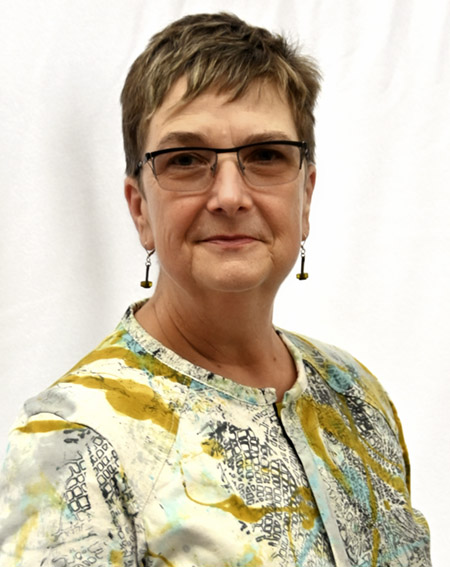
Dr. Charlene Senn
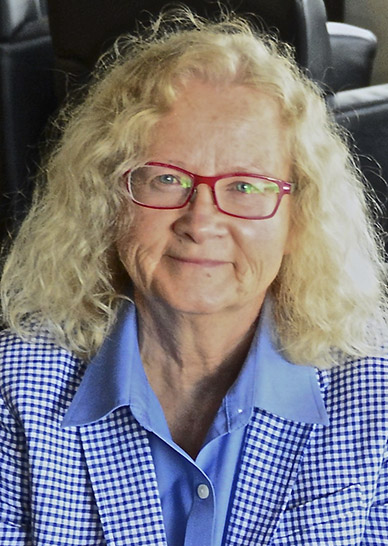
Dr. Lorraine Radtke
Dr. Charlene Senn and Dr. Lorraine Radtke, Section on Women And Psychology
The CPA’s Section for Women And Psychology (SWAP) creates a community of researchers, teachers, and practitioners interested in the psychology of women and feminist psychology. Today’s Psychology Month feature talks to Dr. Lorraine Radtke and Dr. Charlene Senn about the work they’re doing in this space.
Psychology Month Profile: Dr. Joshua Bourdage and Dr. Winny Shen, Industrial Organizational Psychology

Dr. Joshua Bourdage

Dr. Winny Shen
Dr. Joshua Bourdage and Dr. Winny Shen, Industrial Organizational Psychology
Industrial/Organizational psychology is the study of psychology in the workplace. We spoke to Dr. Joshua Bourdage and Dr. Winny Shen about workplace culture, organizational structure, and the vast variety of work I/O psychologists do.
Psychology Month Profile: Dr. Cheryl Harasymchuk, Dr. Katherine Starzyk, and Dr. John Zelenski, Social and Personality Psychology

Dr. Cheryl Harasymchuk
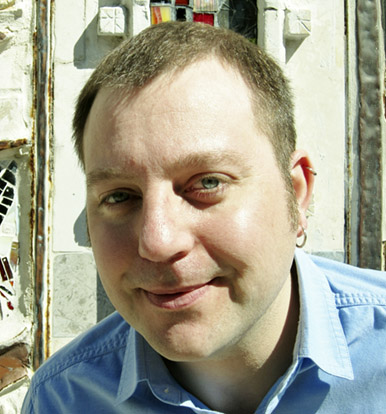
Dr. John Zelenski
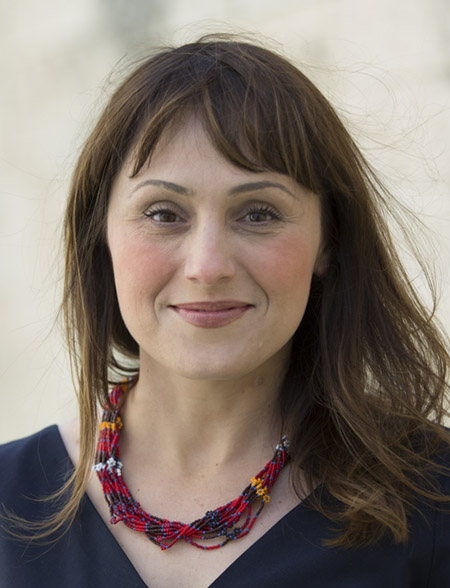
Dr. Katherine Starzyk
Dr. Cheryl Harasymchuk, Dr. Katherine Starzyk, and Dr. John Zelenski, Social and Personality Psychology
Social and Personality Psychology is really a description of two different disciplines that are inextricably linked. We spoke to Dr. Cheryl Harasymchuk, Dr. Katherine Starzyk, and Dr. John Zelenski about the contentious history and harmonious present, and the work they do to influence us all to be better.
Psychology Month Profile: Dr. Randal Tonks and Dr. Gira Bhatt, International and Cross-Cultural Psychology
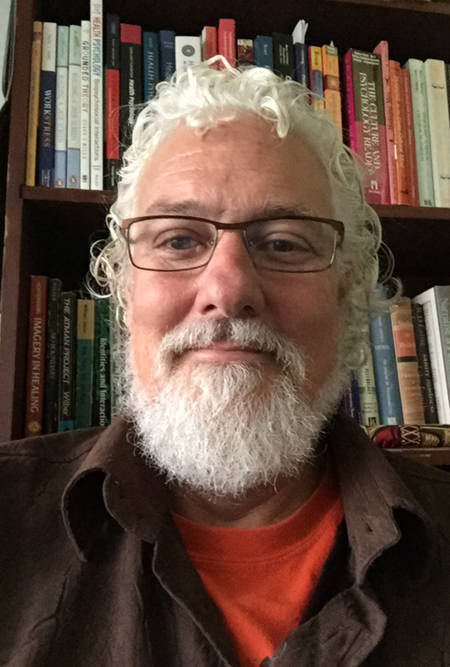
Dr. Randal Tonks

Dr. Gira Bhatt
Dr. Randal Tonks and Dr. Gira Bhatt, International and Cross-Cultural Psychology
International and Cross-Cultural Psychology are two separate but related fields. The study of cultural differences and similarities has long brought needed perspective to psychology, and that work has been accelerated as the world becomes more and more globally connected. We spoke to Dr. Randal Tonks and Dr. Gira Bhatt about the work they do in this space.
Psychology Month Profile: Dr. David Nussbaum and Dr. Yusef Karimi, Extremism and Terrorism
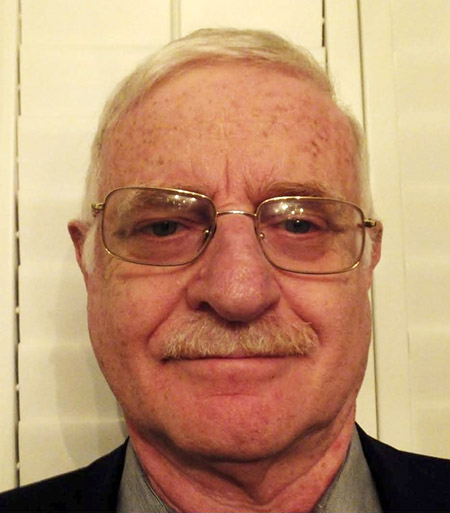
Dr. David Nussbaum
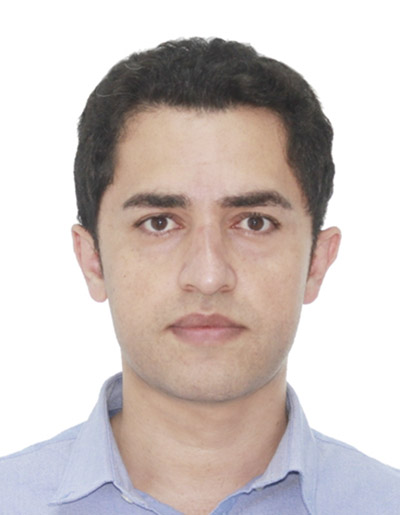
Dr. Yusef Karimi
Dr. David Nussbaum and Dr. Yusef Karimi, Extremism and Terrorism
Extremism and Terrorism are not limited to a geographic location or to a time period. We see the results all over the world, here in North America, in the Middle East, and most recently in Europe. Dr. David Nussbaum and Dr. Yusef Karimi discuss psychology’s role in understanding, and possibly preventing, violent extremism.
Psychology Month Profile: Dr. Wendy Darr, Dr. Allister MacIntyre, Dr. Susan Dowler and Dr. Damian O’Keefe, Psychology in the Military
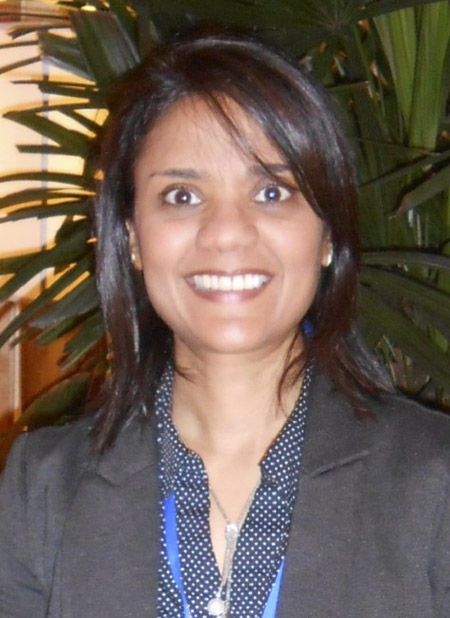
Dr. Wendy Darr
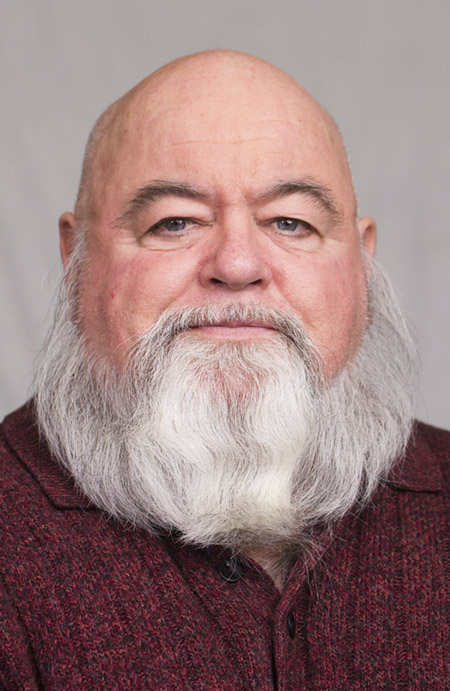
Dr. Allister MacIntyre

Dr. Damian O’Keefe
Dr. Wendy Darr, Dr. Allister MacIntyre, Dr. Susan Dowler and Dr. Damian O’Keefe, Psychology in the Military
Psychologists in the military play many roles, from personnel selection to designing training to a number of therapy roles. We spoke with Dr. Wendy Darr, Dr. Allister MacIntyre, Dr. Susan Dowler and Dr. Damian O’Keefe to learn more.
“Psychology Works” Fact Sheet: Coping with Emergencies, Disasters and Violent Events
Like any life stressor, public health emergencies (e.g., pandemics), disasters (e.g., tsunamis, earthquakes, tornadoes), and violent events (e.g., mass shootings, terrorist acts, wars), challenge the way we cope. Whether we learn about them on television or experience them personally, we can feel upset, fearful, and/or anxious as a result, both for our own personal safety and that of our family, friends, and community. Stressful events can also bring up feelings and memories of previous traumatic events thereby compounding the distress that we feel.
People who may respond more strongly to the stress of a disaster, emergency or violent event include older adults, children and teens; first responders and health care providers who are helping with the disaster/crisis response; people who have mental health conditions including problems with substance use or who worry excessively; people who live alone or have few social supports; and people who are personally impacted or whose friends and family are personally impacted by what is happening.
Things to Keep in Mind about Stress
It is normal to be emotionally affected, to different degrees, by large-scale disasters and events. It is important to remember that.
- People are strong and resilient, and generally have the skills they need to cope with the stressors they will face in a lifetime.
- Not everyone reacts to the same event in the same way and not everyone shows their distress in the same way.
- The ways in which children and communities cope and react to a stressor are influenced by how they see parents, caregivers and community leaders cope and react.
Coping with Disasters, Emergencies, and Violent Events
Taking Care of Yourself:
- Hearing about the disaster or crisis repeatedly can be upsetting, so take breaks from watching, reading, or listening to news stories, including social media.
- Take care of your body. Take deep breaths, stretch, or meditate. Try to eat healthy, well-balanced meals, exercise regularly, get plenty of sleep, and avoid alcohol and drugs.
- Connect with others. Talk with friends and family, or a professional, about your concerns and how you are feeling.
- Manage your thoughts and emotions, and remain hopeful
- Maintain as normal a routine as possible, including engaging in activities you enjoy or find relaxing.
- Be part of the healing (e.g., organize or participate in a public memorial to honour the victims of violence, donate your time/money/supplies, volunteer with a local agency)
Taking Care of your Family:
Disasters and crises can be particularly upsetting to children and teens. Children and teens react, in part, to what they see from the adults around them so stay calm to provide the best support. In addition to limiting your family’s exposure to news coverage of the event and maintaining regular routines enjoyable activities, you can support your child or teen by:
- Giving them the opportunity to talk about their concerns, telling them the truth, reassuring them, and letting them know they can count on you.
- Letting them know it is ok if they feel upset or scared and talk to them about ways to cope with their feelings.
Responding as a Community:
- Stay informed and take guidance from experts
- Follow the health and safety guidelines of health agencies and public health officers
- Remember that the media reports things that go wrong, or exceptional events, more often than things that go right, or common events.
- Balance gathering information and heeding safety guidelines to reduce risk with not letting the gathering of information or the attention to safety guidelines unduly preoccupy you.
When Psychological Distress Becomes Too Much
Disasters, crises, and violent events will affect people differently. We can be affected psychologically and/or physically; some reactions can be immediate, and others can be delayed. Violent events can be especially painful when the victims are part of a racial, ethnic, or other group with whom you may identify. Stressors that are beyond our personal control are especially difficult to cope with well.
If you notice your child or teen’s behaviour has changed significantly, discuss the situation with them. Signs and symptoms that might signal a psychological problem or disorder for which you or a loved one might benefit from professional help include:
- Changes in eating or sleeping patterns (too much or too little)
- Avoiding others (even within the confines of social distancing) or talking less
- Experiencing headaches, stomach problems, neck or back pain or worsening of chronic health problems
- Excessive crying, worry, sadness, fear, or panic attacks
- Feeling angry, guilty, helpless, numb, confused, irritable or impatient
- Thinking about or watching too much television about the disaster or crisis
- Not wanting to get out of bed
- Having difficulties concentrating or with attention
- Increased use of alcohol, tobacco, and other drugs
- Feeling overprotective of loved ones
- Avoidance of activities enjoyed in the past
- Amongst children or teens, poor school performance or avoiding school, return to behaviours they have outgrown (e.g., bedwetting), or “acting out” behaviours
It is important to remember that most of us have had some of the signs and symptoms listed above at one time or another. You are well advised to consult a regulated health care professional such as a psychologist, your family physician, a nurse practitioner, psychiatrist, or other mental health provider if you have a number of these signs and symptoms and they
- persist beyond a couple of weeks
- persist to the point where you are not able to carry out the home or work-related activities permitted by social distancing advisories
- are accompanied by intense feelings of despair or helplessness or suicidal thoughts.
How Can Psychologists Help?
Victims of Disasters, Emergencies, and Violent Events – Role of Psychologists
Whenever there is a disaster, emergency or violent event, psychologists can be and often are mobilized to help.[1] Psychologists are trained to help people cope with stress and strong emotions, whether they be a victim, a witness, a loved one, or a first-responder.
Psychologists can help with individuals deal with the psychological and physical symptoms noted above, through the following:
- Diagnosing a mental health issue and developing a treatment plan
- Helping people build upon their own internal resources to begin the recovery process
- Connecting survivors with others as they learn to cope with both the logistical and emotional challenges of the traumatic event
- Educating people about the range of emotions they may experience following the event
- Listening to people’s concerns on a variety of issues (e.g., parents about children)
- Helping people to manage their temporary living conditions such as shelters
- Providing information about and helping facilitate connections to obtain resources for current needs such as clothing, medical care, etc.
- Advocating for the needs of individuals or families as they navigate systems that have been established to provide aid
- Helping people to develop their own personal recovery and change-acceptance plans
- Helping problem-solve conflicts
- Helping people manage any other life disasters that may be occurring simultaneously with the traumatic event
- Helping children to use positive coping strategies, connect with others, help others, and re-establish familiar routines and structures
Psychologists with experience in disaster mental health and/or public health can also offer to consult with recognized humanitarian organizations and/or offer to provide training to other colleagues.
Psychologists can also develop collaborative research relationships with psychologists in the affected regions.
The long-term requirements for people skilled in consultation and training in disaster-affected areas are numerous. Psychologists wanting to help in emergency situations are urged to prepare by getting trained in disaster mental health.
Where can I go for more Information?
You can consult with a registered psychologist to find out if psychological interventions might be of help to you. Provincial, territorial and some municipal associations of psychology often maintain referral services. For the names and coordinates of provincial and territorial associations of psychology, go to https://cpa.ca/public/whatisapsychologist/PTassociations/.
Additional resources
http://cpa.ca/docs/File/Publications/FactSheets/PsychologyWorksFactSheet_PTSD.pdf
http://apa.org/topics/index.aspx
http://www.phac-aspc.gc.ca/mh-sm/pubs/mental_illness/acknowl-eng.php
https://www.redcross.org/about-us/our-work/disaster-relief/disaster-mental-health.html
This fact sheet has been prepared by the Canadian Psychological Association.
Date: February 2022
Your opinion matters! Please contact us with any questions or comments about any of the Psychology Works Fact Sheets: factsheets@cpa.ca
Canadian Psychological Association
Tel: 613-237-2144
Toll free (in Canada): 1-888-472-0657
[1] Adapted from the American Red Cross Foundations of Disasters Mental Health Manual
Psychology Month Profile: Alejandra Botia and Emily Winters, Students in Psychology

Alejandra Botia

Emily Winters
Alejandra Botia and Emily Winters, Students in Psychology
Students in psychology, like students everywhere, have had a tough adjustment to make these last two years. Alejandra Botia and Emily Winters spoke to us about what they’re doing to help their fellow students navigate the new challenges presented by COVID.
